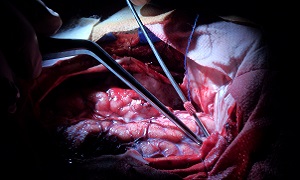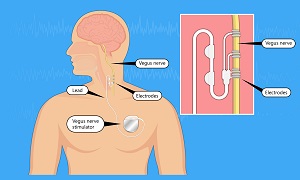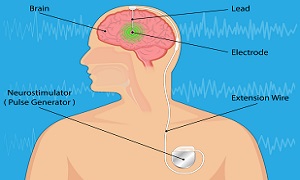Best Doctors in India for Epilepsy Treatment
Best Hospitals in India for Epilepsy Treatment
- City: Mumbai, India
Hospital Highlights:
- Fortis Hiranandani hospital was established in 2007.
- The hospital is an advanced tertiary care, multi-specialty hospital equipped with 149 beds.
- The hospital is equipped with a super ICU to provide emergency medical care to critically ill patients.
- The hospital is NABH accredited.
- The critical care facility in the hospital is augmented with the state-of-the-art facilities that facilitate speedier diagnosis and efficient monitoring.
- The hospital provides specialty medical services in cardiology, orthopedic science, pediatric science, neurology, diabetic care, urology, nephrology, ENT, obstetrics, gynecology, cosmetic surgery, bariatric surgery, neuro and spine care.
- City: Gurugram, India
Hospital Highlights:
- W Pratiksha Hospital, Gurugram, is one of the best hospitals in the NCR region. It is also a top hospital in India for IVF. Since its inception, the hospital has performed over 5500 successful IVFs. The hospital also specializes in gynecology.
- With over 20 years of experience in providing quality healthcare, the hospital is known as one of the most trusted and valued health providers in India.
- Equipped with world-class medical facilities and advanced technology, the hospital’s doctors and clinicians also have a track record of delivering excellent results. The hospital is also known for focusing on preventive well-being as much as on curative treatment.
- The hospital has earned the trust of its patients, by providing the best available treatments at affordable costs.
- City: Gurugram, India
Hospital Highlights:
- Paras hospital was established in 2006 and is the 250 bedded flagship hospital of Paras Healthcare.
- The is supported by a team of doctors of international and national repute.
- The hospital is NABH accredited and also the first hospital in the region to have a NABL accredited laboratory.
- The hospital provides specialty medical services in around 55 departments including Neurosciences, Joint Replacement, Mother & Child Care, Minimal Invasive Surgery, Gynecology and Obstetrics, Ophthalmology, Dermatology, Endocrinology, Rheumatology, Cosmetic and Plastic surgery.
- The hospital is equipped with state-of-the-art technologies.
- City: Kolkata, India
Hospital Highlights:
- Fortis Hospital, Anandapur, Kolkata is a world-class super-speciality equipped with the latest technologies in the medical world.
- The hospital is NABH accredited.
- This state-of-the-art facility specializes in cardiology and cardiac surgery, urology, nephrology, neurosciences, orthopaedics, digestive care, emergency care and critical care.
- The hospital, governed by integrated Building Management System (IBMS), has a pneumatic chute system, for quick vertical and horizontal transportation between floors, facilitating speedy transfer of patient specimens, documents, reports, and medicines to the concerned departments.
- The hospital also has a nephrology department with over 28 advanced dialysis units.
- City: Mumbai, India
Hospital Highlights:
- SL Raheja hospital is a 140-bed multi-specialty tertiary care hospital that is being managed by Fortis Healthcare Ltd.
- The hospital is a benchmark in healthcare and medical facilities in the neighborhood of Mahim & the western suburbs.
- L.Raheja Hospital, Mahim has one of the most effective ICU and Casualty care services.
- The hospital provides specialty medical services in Cardiology, Oncology, Neurology, Orthopedics, Mother & Child Care, and in Diabetes.
- City: Mumbai, India
Hospital Highlights:
- Wockhardt Hospitals were established in the year 1973, originally called First Hospitals and Heart Institute.
- Wockhardt Hospitals are super specialty health care networks in India, nurtured by Wockhardt Ltd, India’s 5th largest Pharmaceutical and Healthcare company.
- Wockhardt Hospitals is associated with Partners Harvard Medical International, an international arm of Harvard Medical School, USA.
- Wockhardt Heart Hospital performed India’s first endoscopic heart surgery.
- The hospital has a state-of-the-art infrastructure equipped with the latest technologies and modern equipment.
- It has special Centers of Excellence dedicated to the major specialties to provide hassle-free and high-quality clinical care.
- City: Gurugram, India
Hospital Highlights:
- The CK Birla Hospital in Gurugram is a NABH-accredited multi-specialty hospital.
- The hospital strives to increase the quality of healthcare by focusing on UK NHS nurse and midwife training requirements. Policies and practices derived from the National Institute for Health and Treatment Excellence (NICE) recommendations in the United Kingdom ensuring that a strong focus on safety, high-quality clinical care, and sanitation is maintained.
- The hospital’s cutting-edge technology and facilities allow for real-time communication and seamless collaboration among caregivers, ensuring accuracy and the best possible results. Those with foreign experience and accreditations make up part of the hospital’s team of clinicians.
- City: Ahmedabad
Hospital Highlights:
- As a member of the Apollo Hospitals Group, Apollo Hospitals International Limited, Ahmedabad is one of the most popular and sought-after medical facilities in Gujarat.
- Through its 6 Centres of Excellence and various affiliated branches, which cover all specialties and subspecialties, the hospital provides the most advanced clinical services.
- Since its inception in 2003, the hospital has been providing each patient with the most up-to-date medical equipment and state-of-the-art technology.
- With more than 150 successful organ transplants, including liver and renal transplants, the facility has been able to build a strong and extensive organ transplant program.
- In addition to performing 600 surgeries and caring for over 1800 patients on an IP basis, the hospital sees more than 18,000 patients on average in the outpatient department.
- With one of the biggest cardiology teams in the area, the hospital provides state-of-the-art regional care treatment in Cardiac Sciences.
- Additionally, the hospital offers a broad range of Neuro Interventional techniques to help stroke patients recover more quickly.
- City: Noida, India
Hospital Highlights:
- Jaypee Hospital is the flagship hospital of the Jaypee Group.
- This hospital has commissioned 525 beds in the first phase and has been planned and designed as a 1200 bedded multi-specialty facility.
- It holds the accreditation of the NABH and NABL.
- The hospital has state-of-the-art infrastructure equipped with the latest technologies and modern equipment like 64 Slice PET CT, Dual Head 6 Slice SPECT CT, Gamma Camera, and Da Vinci Robotic Surgery for comprehensive robotic surgical solutions.
- It has special Centers dedicated to the major specialties to provide hassle-free and high-quality clinical care.
- City: Mumbai, India
Hospital Highlights:
- Reliance Hospital is one of the best super-specialty care hospitals in Navi Mumbai.
- The main purpose of this hospital is to become a trustworthy place for the best health and hope for society. The hospital is well connected to the suburbs of Mumbai and Navi Mumbai.
- The hospital has various specialty departments, viz., Accident & Emergency, Anesthesiology, Dental Services, Dermatology, Diabetology, Dietetics Nutrition, Endocrinology, ENT, Gastroenterology, General Surgery, Gynaecology And Obstetrics, Hepato Pancreato Biliary Surgery, Infectious Disease, Internal Medicine, Interventional Radiology, Laboratory Medicine, Minimal Access Laparoscopic Surgery, Nephrology, Neurosciences, Opthalmology, Orthopaedics, Paediatrics, Pain Management Palliative Care, Physical Medicine Rehabilitation, Plastic And Reconstructive Surgery, Psychiatry, Pulmonary Medicine, Radiology, Rheumatology, Transplant, Urology Andrology, Vascular Surgery
What is Epilepsy?
Epilepsy is a disorder of central nervous system or a neurological disorder characterised by abnormal brain activity that leads to seizures and sometimes loss of awareness.
Causes & risk factors of Epilepsy
- Head trauma or sudden blow to the head.
- Brain tumours or brain stroke.
- Infectious diseases like meningitis, AIDS and viral encephalitis.
- Injuries before birth or prenatal injury.
- Having family history of Epilepsy.
- Dementia can increase the risk of epilepsy in older adults.
Symptoms of Epilepsy
- Temporary confusion
- A brief seizure, usually less than 15 seconds, also known as staring spell.
- Uncontrollable & jerking movements of the arms and legs.
- Loss of awareness.
- Fear, anxiety
Types of Seizures
Doctors generally classify seizures either focal or generalized, based on how the abnormal brain activity begins.
Focal Seizures
Focal Seizures occur when there abnormal activity in just one area of brain.
These seizures are of two types:
- Focal seizures without loss of consciousness – They may change the way things look, smell, feel, taste or sound & may also result in involuntary jerking of a body part, such as an arm or leg but don’t cause a loss of consciousness. They were once called simple partial seizures.
- Focal seizures with impaired awareness – These seizures involve a change or loss of consciousness or awareness. & were once called complex partial seizures.
Generalized seizures
Generalized seizures involve all areas of the brain.
Types of Generalized seizures.
- Absence seizures also known as petit mal seizures – They usually occur in children and involve subtle body movements such as eye blinking or lip smacking.
- Tonic seizures – These usually affect muscles in your back, arms and legs.
- Atonic seizures – Also known as drop seizures, atonic seizures can cause a loss of muscle control, which may cause sudden collapse.
- Clonic seizures – Clonic seizures involve repeated or rhythmic, jerking muscle movements.
- Myoclonic seizures – These usually involve sudden brief jerks.
- Tonic-clonic seizures – These were previously known as grand mal seizures, can cause an abrupt loss of consciousness, body stiffening and shaking, and sometimes loss of bladder control or biting the tongue
Diagnosis of Epilepsy
Neurological exam
Blood tests
Electroencephalogram (EEG)
CT scan
MRI
SPECT
Treatment of Epilepsy
Medicines
Surgeries
When medications fail to provide adequate control over seizures, surgery may be an option. Surgery is generally considered when:
- Seizures originate in a small and well-defined region of the brain
- The said area doesn’t control any vital function of the body like vision, hearing, speech etc.
The surgical options for the treatment of Epilepsy are as follows:
Resective surgery
Resective surgery is the most common surgery used for the treatment of Epilepsy. This surgery involves removal of brain tissues in the area of the brain where seizures originate.
Corpus Callostomy
Corpus callosotomy is the surgery of bundle of nerves that connects the right and left sides of the brain & is usually used in children.
Hemispherectomy
Hemispherectomy involves removal of one side (hemisphere) of the folded gray matter of the brain.
Functional Hemispherectomy
Functional hemispherectomy, is primarily used in children & involves the undercutting of the seizure-inducing hemisphere.
Therapies
Apart from medications and surgery, the following therapies can offer an alternative for treating epilepsy.


















